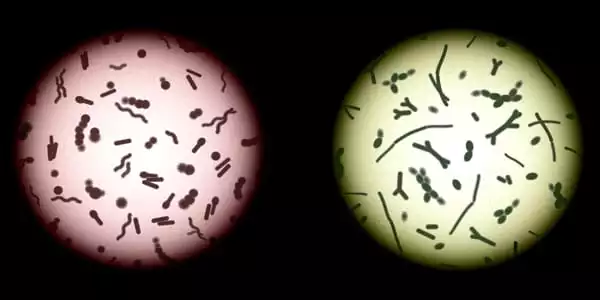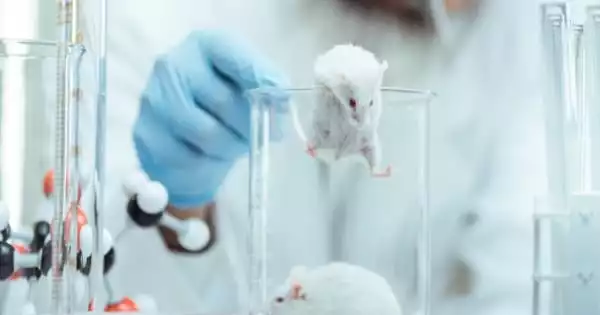Fecal transplants may appear to be an unlikely way to reverse the aging process in the quest for eternal youth. Scientists have provided evidence from mouse research that transplanting fecal microbiota from young mice into old mice can reverse aging signs in the gut, eyes, and brain. Microbes from aged mice induced inflammation in the brains of young recipients and depleted a key protein required for normal vision in the reverse experiment. These findings suggest that gut microbes play a role in regulating some of the negative effects of aging, opening the door to the development of gut microbe-based therapies to combat decline in later life.
In the search for eternal youth, fecal transplants may seem like an unlikely way to reverse the ageing process.
Scientists at the Quadram Institute and the University of East Anglia, on the other hand, have shown in mouse studies that transplanting faecal microbiota from young mice into old mice can reverse signs of aging in the gut, eyes, and brain.
Microbes from aged mice induced inflammation in the brains of young recipients and depleted a key protein required for normal vision in the reverse experiment. These findings suggest that gut microbes play a role in regulating some of the negative effects of aging, opening the door to the development of gut microbe-based therapies to combat decline in later life.
Prof Simon Carding, of the University of East Anglia’s Norwich Medical School and the Quadram Institute’s Gut Microbes and Health Research Programme, said, “This ground-breaking study provides tantalizing evidence for the direct involvement of gut microbes in ageing and the functional decline of brain function and vision, and offers a potential solution in the form of gut microbe replacement therapy.”
We were excited to find that by changing the gut microbiota of elderly individuals, we could rescue indicators of age-associated decline commonly seen in degenerative conditions of the eye and brain.
Dr Aimee Parker
The population of microbes that we carry around in our gut, known collectively as the gut microbiota, has long been linked to health. The majority of diseases are linked to changes in the types and behavior of bacteria, viruses, fungi, and other microbes in a person’s gut.
Some of these changes in microbiota composition occur as we age, affecting metabolism and immunity and has been linked to age-related disorders such as inflammatory bowel disease, cardiovascular, autoimmune, metabolic, and neurodegenerative disorders.
To better understand the effects of these changes in the microbiota in old age, scientists from the Quadram Institute transferred gut microbes from aged mice into healthy young mice and vice versa. They then investigated how this affected inflammatory markers of aging in the gut, brain, and eyes, all of which suffer from declining function as people age.
The study, published in the journal Microbiome, found that the microbiota from old donors led to loss of integrity of the lining of the gut, allowing bacterial products to cross into the circulation, which results in triggering the immune system and inflammation in the brain and eyes.

Inflammageing, or age-related chronic inflammation, has been linked to the activation of specific immune cells found in the brain. These cells were also overactive in young mice given aged microbiome transplants.
In the eye, the researchers discovered that specific proteins associated with retinal degeneration were elevated in young mice given microbiota from elderly donors. These negative changes in the gut, eye, and brain of old mice could be reversed by transplanting the gut microbiota of young mice.
The team is now working on understanding how long these positive effects can last, as well as identifying the beneficial components of the young donor microbiota and how they impact organs other than the gut. The microbiota of young mice and old mice who received young microbiota transplants were enriched in beneficial bacteria previously associated with good health in both mice and humans.
The researchers also examined the products that these bacteria produce by breaking down elements of our diet. This has revealed significant changes in lipid (fat) and vitamin metabolism, which may be linked to changes in inflammatory cells in the eye and brain.
Similar pathways exist in humans, and the human gut microbiota changes significantly in old age, but the researchers caution against extrapolating their findings to humans until similar studies in elderly humans can be conducted.
In the Quadram Institute, a new facility for Microbiota Replacement Therapy (MRT), also known as Faecal Microbiota Transplantation (FMT), is being built to facilitate such trials as well as other trials for microbiota-related conditions.
“We were excited to find that by changing the gut microbiota of elderly individuals, we could rescue indicators of age-associated decline commonly seen in degenerative conditions of the eye and brain,” said Dr Aimee Parker of the Quadram Institute.
“Our findings add to the growing body of evidence linking microbes in the gut to healthy aging of tissues and organs throughout the body. We hope that our findings will eventually help us understand how we can manipulate our diet and gut bacteria to improve our health in old age.”















